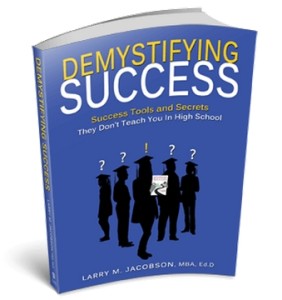As the holidays quickly approach, I want to caution you to be extra aware as to how your spending often reflects and impacts your inner mood and perception of yourself. In several of my recent blogs, I have shared my thoughts regarding America’s obsession with financial obesity, one’s obsessive and self-sabotaging need to constantly overspend and remain financially unhealthy.
The holidays often affect one’s mood positively or negatively. It’s time to reflect upon all the great things that have been attracted into your life, as opposed to getting all caught up in the self-defeating negativity, that often results from dragging yourself down with the potentially false idea that there have been no significant changes this year.
The retailers and advertisers strategically time their can’t-resist offers, discounts and other attention-getting techniques during the holidays to exploit a person’s emotional outcomes. As a result, we often tend to become blinded by the supposed emotional gratification that comes with spending. Yet we also tend to neglect our focus on the needed fiscal responsibilities that, if not kept in check, could seriously derail one’s future success.
 In my book, Demystifying Success: Success Tools and Secrets they Don’t Teach You in High School, I dedicate a chapter of my book to explaining good savings habits, an important concept you need to start adopting from an early age. This skill helps you to become a better money manager, which will help you to constantly generate income and ultimately create new wealth opportunities for success.
In my book, Demystifying Success: Success Tools and Secrets they Don’t Teach You in High School, I dedicate a chapter of my book to explaining good savings habits, an important concept you need to start adopting from an early age. This skill helps you to become a better money manager, which will help you to constantly generate income and ultimately create new wealth opportunities for success.
Here’s an important concept to raise your awareness of, especially as you begin to plan your holiday shopping list: a good understanding between ‘good debt’ versus ‘bad debt’. Bad debt includes any form of debt that requires you to pay interest on any monies that you borrow from a lender in order to either purchase or acquire something that will never generate any possible revenue (profits) for you in the future. Good debt is when there are some times when it is okay to borrow money from a bank, investor or credit card company, but ONLY if you use this borrowed money to purchase things that will ultimately help you to generate more revenue (profits) in the future and restore the original amount borrowed plus any interest required to the lender. Most importantly, you need to learn from an early age that successful wealth creators acquire excellent money management skills in order to balance both types of debt and understand this distinction.
Within my chapter on Personal Finance, I also carefully explain the concept of FICO scores and how they may positively or negatively impact your future decisions and success. FICO stands for the Fair Isaac Company, named after the company that first created and computed this popular credit score. Banks and lending institutions rely on your FICO score as a way of determining how trustworthy you are in terms of managing your money and repaying your debts.
To end on a festive note this year, I highly suggest that you sit down and draft out a realistic budget for yourself before you begin indulging in your creative or last minute impulsive holiday shopping. Don’t get me wrong, being creative with your gift ideas can be both fun and inspiring, but you also need to keep your expectations and spending in check. Too often, we carelessly choose gifts that we think others will want based upon unrealistic expectations or desired outcomes and we may go overboard. By taking the time to really sit down and carefully draft a manageable budget, you can still be creative. Simply choose something that you know the recipient would truly appreciate and enjoy (e.g. buying something fun that they would never think to buy for themselves or something that will be a nice reminder of you) that does not have to result in you spending a lot of money.
To help you get started, here are five questions to ask yourself before you decide to start spending your hard-earned cash or, even worse, incur any future unnecessary credit card debt and interest:
1. Why am I really buying this product or service?
2. How will I or the recipient use this product or service in the future?
3. How long do I plan to use this product or service before it becomes useless?
4. Does this purchase provide me with any immediate revenue-generating opportunities? And the hardest question of them all:
5. What would happen if I chose to wait another two to six months until I could truly afford to buy this purchase without using borrowed money (credit or loan)? If not, consider waiting, or to use an old cliché, “Sleep on it”.
Please remember, the financially obese are not broke; they are broken! Do not let fear or unfounded expectations prevent you from achieving the personal and financial success you desire.
I want to wish you a happy, healthy and successful holiday season.
